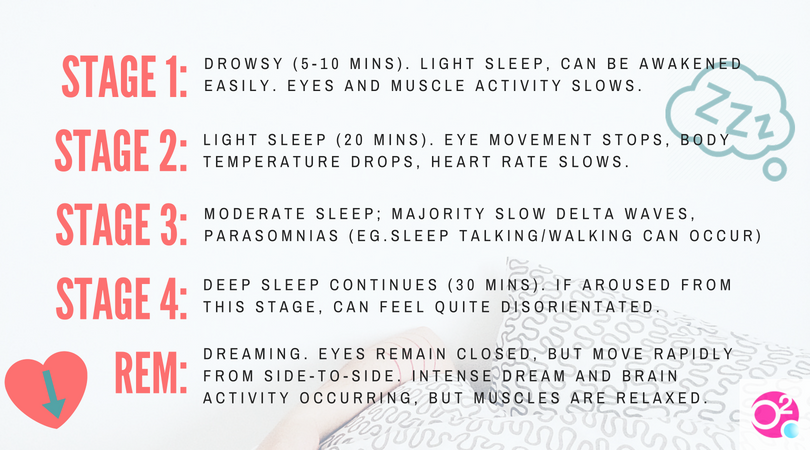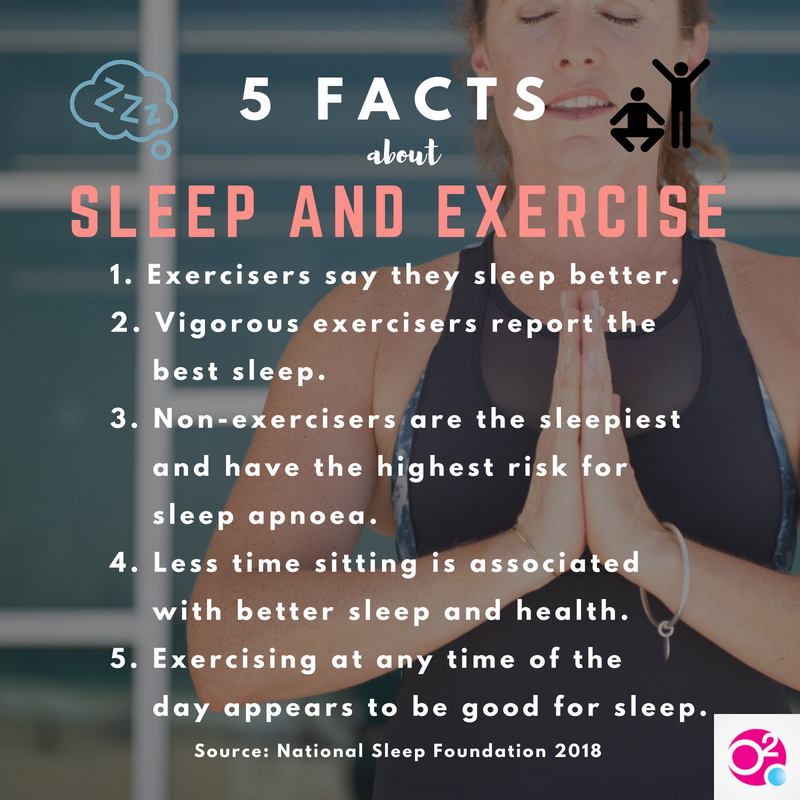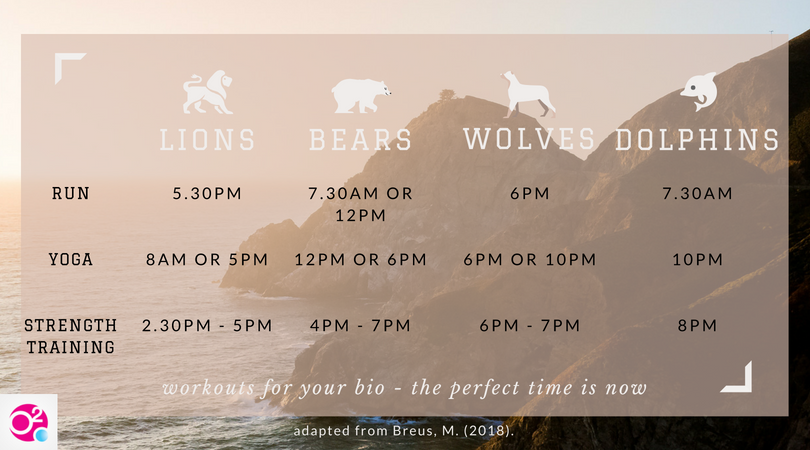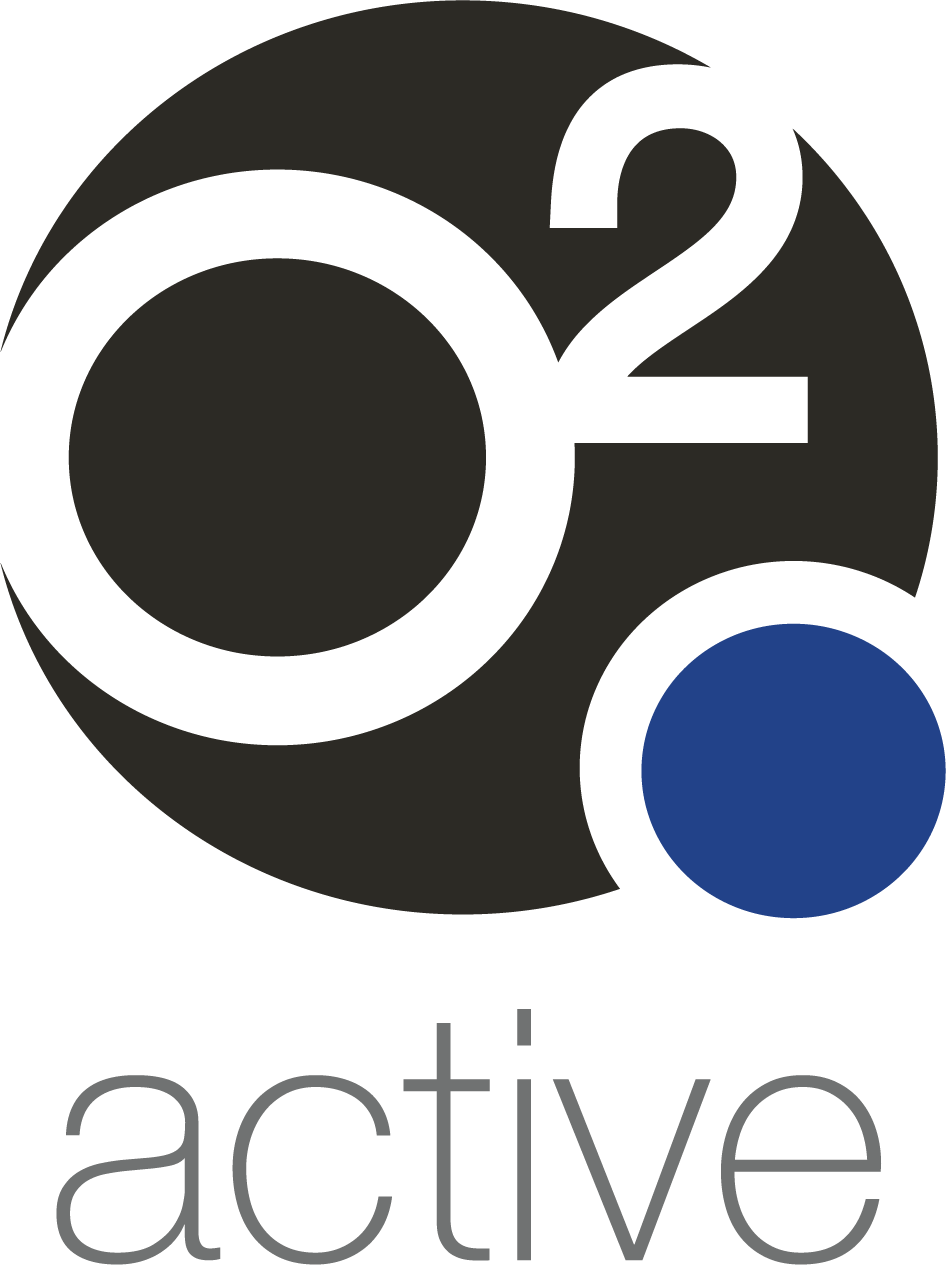Article by Vic Phan, AEP
Do you want to fall asleep faster and wake up feeling more well-rested? As simple as it sounds, just get moving! Just 10 minutes of aerobic exercise (including walking, swimming and cycling), can dramatically improve the quality of your sleep. Now, if you’re incorporating regular exercise in your routine, the physical and mental benefits can only get better during both your day and night.
A little background about sleep. There are five stages: 1, 2, 3, 4 and REM (rapid eye movement). These stages progress from 1 through REM and repeat with stage 1 again. A complete cycle takes between 90 to 110 minutes. Initially the cycles have longer periods of deep sleep and shorter REM periods, but as the sleep progresses; deep sleep shortens, and REM stages lengthen.

The Exercise and Sleep Relationship
Physical activity promotes sleep quality and increases sleep duration. When your body is active, it increases the time spent in deep sleep – the most physically restorative sleep phase. During deep sleep, human growth hormone is released and restores your body and muscles from the stresses of the day. It is this phase that helps to boost immune function, support cardiac health, and control stress and anxiety. Exercise can also help by tiring you out. Being more active requires you to expend energy, helping you to feel more tired and ready to rest by the end of the day.
Too Stressed to Sleep?
Stress is a common cause of sleep problems; including finding it difficult to fall asleep, and feeling restless throughout the night. Evidence suggests that there is an inverse correlation between stress and sleep quality. High stress levels have negative impacts on sleep quality, and poor sleep quality in turn affects subsequent stress levels. Surprise surprise – exercise is a potent remedy for anxiety and stress – just 5 minutes of exercise can trigger anti-anxiety responses in the body. Exercises like yoga and stretching can help lower cortisol levels and reduce blood pressure – and let’s not forget the amazing benefits for mental health too.
The Time is Right
It used to be thought that a vigorous workout just before bedtime over-stimulated the body, and therefore would disrupt sleep patterns. However, it actually depends on the individual. In a nutshell though, the body temperature stays elevated for about 4 hours after you finish exercising, and a higher body temperature interferes with your ability to fall asleep. What does this have to do with sleep? The body prepares itself for sleep via a drop-in core body temperature, which begins in the late afternoon. Therefore, exercises like light stretching, relaxed yoga, or a light walk after dinner would be beneficial, to ease into a healthy night routine. However, if the only time you can squeeze in that workout is late in the evening, then by all means. Just take a cool shower to help you prepare your body for sleep.
Sacrifice Exercise or Sleep?
There are trade-offs. Most of the time it’s easier to go to sleep when you are tired and just skip the workout. However, it might be beneficial for your long-term health to make the hard decision and get your exercise in.
A study by Loprinzi and Cardinal (2011) looked into the correlation between physical activity and sleep for a sample of 2600 participants (aged 18-85 years). They found that in prescribing 150 minutes of moderate to vigorous activity per week (the guideline), there was a 65% improvement in sleep quality. Participants also reported that they felt less sleepy during the day, compared to those who were less physically active. The association between regular physical activity and perceptions of sleepiness during the day, suggests that regular physical activity participation may have a positive impact on work productivity and alertness.
When you’re on a busy working schedule, and can’t squeeze in the time to exercise – think again about what that can do to the quality of your sleep. Increasing scientific research is suggesting regular physical activity as a non-pharmaceutical alternative to improve sleep.

Workouts for Your Bio-Clock
Have you noticed that there are certain times when you prefer to do certain things – and these might not always align with those around you? Dr. Michael Breus (Board Certified Sleep Specialist, author and expert) categorises these preferences into four ‘archetypes’, using mammals to represent these chronotypes.
- Lions – the morning types
- Bears – the middle of the road types
- Wolves – the night-time types
- Dolphins – difficult sleepers

References
- Breus, M. (2018). There is a BEST time to exercise for health and performance!. Retrieved from https://medium.com/@thesleepdoctor/there-is-a-best-time-to-exercise-for-health-and-performance-c7af7aa079bd
- Loprinzi P, Cardinal B. Association between objectively measured physical activity and sleep, NHANES 2005-2006. Mental Health and Physical Activity. 2011; 4 (2): 65-69. https://doi.org/10.1016/j.mhpa.2011.08.001
- Wunsch K, Kasten N, Fuchs R. The effect of physical activity on sleep quality, well-being, and affect in academic stress periods. Nature and Science of Sleep. 2017;9:117-126. doi:10.2147/NSS.S132078.
